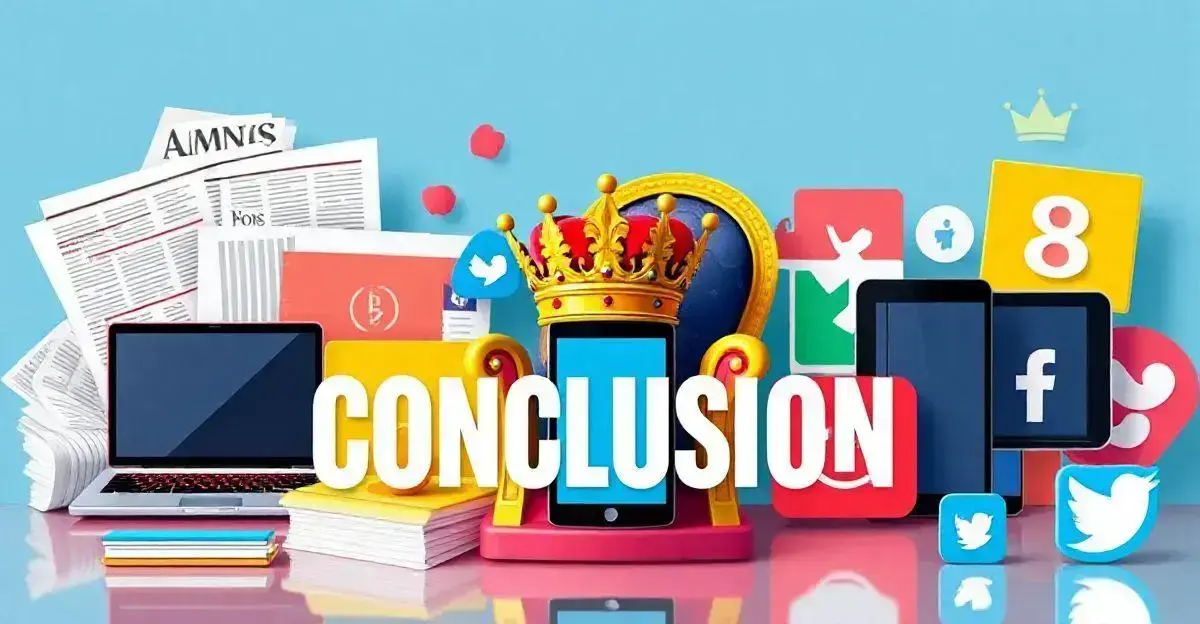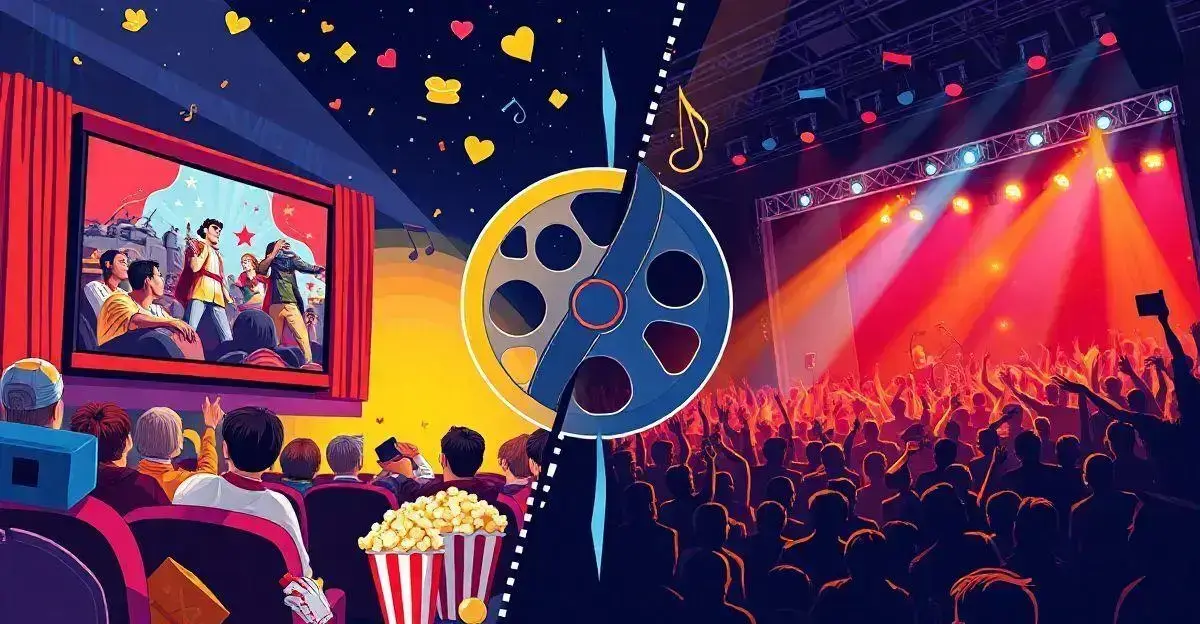Índice
Are movies or music more entertaining? This is a question many ardent fans of both mediums often ponder.
In a world filled with cinematic masterpieces and unforgettable music, determining which holds more entertainment value can be quite the task.
The entertainment experience: Movies vs. music
The debate about Are Movies or Music More Entertaining has intrigued people for ages. Many argue that movies offer a full sensory experience, transporting viewers to different worlds with stunning visuals and storytelling. The emotional impact of a well-executed film can leave audiences in awe.
On the flip side, music has a unique ability to resonate with individuals on a personal level. It serves as a powerful medium for expressing feelings and memories. Listening to a favorite song can evoke emotions, transport listeners back to significant moments, or even inspire action.
Consider how both mediums cater to diverse tastes. Movies, for instance, provide genres ranging from comedy to drama, satisfying various audience preferences. Similarly, music spans countless genres, ensuring there’s something for everyone. This versatility in entertainment makes both options appealing to different demographics.
Furthermore, the social aspect of both movies and music should not be overlooked. People often gather to watch movies as a shared experience, creating memories together. Music, too, brings people together, whether at concerts or during casual gatherings.
While both movies and music offer their unique forms of entertainment, the preference may ultimately come down to individual tastes and experiences. Each medium captivates and enriches lives in distinct ways that make the debate on Are Movies or Music More Entertaining an ongoing and vibrant discussion.
Why movies captivate audiences

Are Movies or Music More Entertaining? Movies have a remarkable way of capturing audiences through storytelling, visual effects, and engaging characters. One of the main reasons why movies captivate viewers is their ability to transport people to different worlds. With adventure, fantasy, and romance genres, films allow audiences to escape reality. Visual storytelling plays a significant role, as cinematography and special effects create stunning visuals that enhance the narrative.
Another factor is empathy. Movies often portray deep emotional journeys that resonate with viewers. Audiences can see themselves in the characters, experiencing their struggles and triumphs. This emotional connection makes films impactful and memorable.
Moreover, the shared experience of watching a movie with friends or family adds to its entertainment value. The thrill of suspense, moments of laughter, or tears shed collectively fosters bonding among viewers.
Are Movies or Music More Entertaining? Finally, the soundtrack of a movie contributes immensely to its impact. Music scores can set the mood, heightening emotional responses during key scenes. A great film is as much about its narrative as it is about its musical composition.
The allure of music in entertainment
The allure of music in entertainment is undeniable. Music has a powerful emotional impact on listeners, often evoking feelings like happiness, nostalgia, or even sadness. Many people find that music enhances their daily experiences, whether it is through background music while working or an upbeat song that lifts their spirits.
Moreover, music is a universal language that brings people together. Regardless of culture or background, people can bond over shared musical tastes. Concerts and festivals allow fans to unite and celebrate their favorite artists, creating lasting memories.
Another captivating aspect of music is its versatility. It can cross genres, mixing elements of rock, pop, jazz, and country to create unique sounds. This innovation keeps the music scene fresh and engaging, appealing to a wide audience.
Finally, music has the ability to tell stories without words. Instrumental pieces can convey emotions that resonate deeply with listeners. Many film soundtracks enhance the viewing experience, allowing the audience to feel the tension or joy without a single word spoken.
Comparing emotional impacts

When comparing the emotional impacts of movies and music, it becomes clear that both mediums interact with our feelings in unique ways. Movies can create a powerful narrative that connects us to characters. The visual representation of their struggles, conflicts, and triumphs allows audiences to bond emotionally with the story.
Conversely, music often taps into emotions instantaneously. A well-composed song can trigger memories or feelings in mere seconds. For many, a favorite tune can transport them back to a specific moment in time, evoking joy, sadness, or nostalgia.
Moreover, while movies may take hours to tell their story, music can evoke similar feelings in just a few minutes. This dynamic efficiency makes music a quick yet profound medium for emotional expression.
Additionally, both movies and music can address similar themes, such as love, loss, and triumph. However, the way these themes are portrayed can impact the emotional weight. A film might depict a heart-wrenching breakup visually, while a song may capture that same feeling through poignant lyrics and melody.
Cultural significance of movies and music
Cultural significance plays a vital role in shaping our understanding of society through various forms of art.
In movies, they serve as a reflection of society, depicting social issues, struggles, and triumphs.
Moreover, they are effective in raising awareness, sparking conversations about important topics like racial equality and mental health.
Similarly, music acts as a catalyst for change, bringing about social change and capturing the spirit of a generation.
Its historical importance is evident, as music has played a key role in movements, from civil rights anthems to protest songs.
Both movies and music have the power of transcending barriers, allowing connections across cultures through shared emotions.
Additionally, they play a crucial role in celebrating culture, preserving and celebrating cultural heritage for future generations.
Which medium reigns supreme?

In the debate of Are Movies or Music More Entertaining, both mediums offer unique experiences that resonate with audiences differently. Movies provide a visual storytelling experience, allowing viewers to escape into fantastical worlds and engage deeply with the characters. This connection enhances emotional responses and fosters a sense of empathy.
On the other hand, music has the power to evoke immediate emotions. Whether it’s the rhythm of a lively beat or the lyrics of a heartfelt ballad, music can instantly transport people to different feelings or memories, creating a direct emotional experience.
While movies often require more time to develop a story, viewers might find themselves captivated by a song’s message in just a few minutes. This quick emotional connection makes music a versatile medium for conveying feelings.
Ultimately, both movies and music play vital roles in entertainment. They respectively cater to different preferences and experiences, making it hard to decide which reigns supreme in the world of entertainment. Are Movies or Music More Entertaining? This question often reflects personal tastes and individual experiences.
Movies can transport viewers into different worlds for hours, while music can evoke feelings and memories in just a few moments, revealing the essential role both mediums play in our lives.
